People often send me links to “Best Places To Retire” or “Top Places to Live Abroad” articles. Panama is routinely among the countries and cities listed and if Panama is not listed, I dig deeper to judge the factors used to create such a list. In my mind, Panama should be on every “Best Of” list!
Recently, someone forwarded me an article entitled “10 Best Cities For Expats” compiled by The Discoverer, https://www.thediscoverer.com/, a robust blogger site supported by hospitality giants like Marriott and Hyatt. The site is beautiful with bright high-quality photographs and lots of quick two-minute reads about how to discover the excitement of travel. Someone needs help discovering the excitement of travel?
Living Not The Same As Vacationing
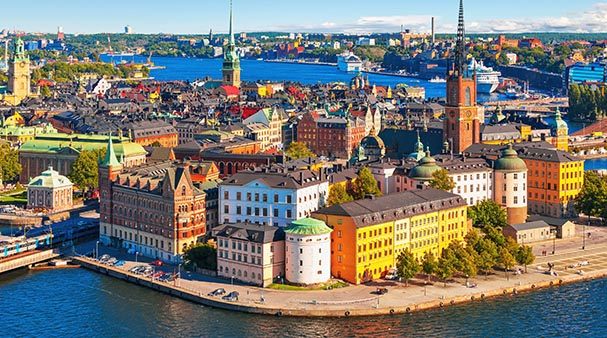
While the site is lovely, I feel these types of guides are exactly what leads people astray when they begin to think about retiring or living abroad. I don’t think “travel blogs” should discuss retiring or living anywhere. Living somewhere is not the same as traveling!
The “10 Best Cities For Expats” is an easy fun read but it does not provide in-depth facts or even solid initial advice. For example, the top city for expats in the article, is Stockholm, Sweden. A wonderful place to visit–especially in the summer when the days are long and the weather warm(ish). The article, however, does not mention that rent for a small studio apartment with less than 400 square feet will run approximately $2,000 a month. Your bed is next to the dorm-sized refrigerator. If you want more, say 1,100 square feet that will run you conservatively $2,800 a month. Public transportation is good, but living in such a northern clime means a much more physical existence. English is widely spoken, but Swedish is a difficult language and you will need some mastery.
Free University Tuition
There are wonderful aspects about Sweden including the fact citizens from the 27 European Union countries or the EFTA (Iceland, Liechtenstein, Norway and Switzerland) can attend university in Sweden tuition-free. For other citizens including the United States and Canada, the very best schools cost between $10,000 and $16,800 USD annually. The average cost of tuition at a public university in the United States is $25,890 with Ivy League tuition running between $73,800 at Harvard and $81,531 for the University of Chicago.

But, of course, a university education is very affordable in Panama, costing around $1,000 USD per academic year for both domestic and international students. Sweden, like Panama also has wonderful healthcare facilities that are affordable and available. Out-of-pocket costs in Sweden will not run more than $140 USD for a medical episode. In Panama, the cost of seeing a specialist may run you $45 and $25 for an internist.
There is no question that Sweden offers a liberal and progressive Schengen Visa program, but Panama set the global standard for visas and permanent residency. And, Panama’s pensionadio program provides everything from reduced medical costs to bargains on cultural events and airline tickets.
In response to encouraging foreign investment, the government now provides a rapid track to permanent residency in Panama with a minimum real estate investment of $300,000. A developer will even provide the legal team to put everything together.
Consider The Safety Of Cape Town
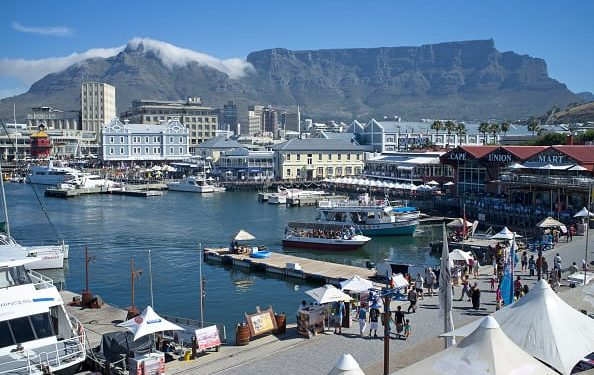
The Discoverer’s list of “10 Best Cities For Expats” included Cape Town, South Africa. Cape Town is a stunningly beautiful city with more affordable rents than Stockholm. Residential options in the city center can be expensive ($2,000 for two-bedrooms, two-baths) but along the waterfront, a two-bedroom, two-bath unit with 950 square feet will run around $1,300. The relatively new V&A Waterfront provides farmers’ markets, upscale restaurants and retail. Everything is walkable. Totally hip and trendy!
The problem with Cape Town and the reason South Africans are one of the largest sources of migration into Panama is that unfortunately, racism is alive and well in this beautiful city. Just last month, a high school graduation turned into a violent brawl between white and black students. Currently, there are numerous demonstrations throughout the city which often can turn from peaceful to violent protests.
Bangkok Might Be A Cultural Shock
Another interesting choice for the “Top 10 Best Cities For Expats” was Bangkok, Thailand. This city made the list based on inexpensive rent and a superior public transportation system that allows expats to manage the “serious traffic problem.” Public transportation is not for everyone, but it is good to have. Panama has the only subway system in Central America as well as a comprehensive bus system, inexpensive taxis and ride-share programs.

Rents are inexpensive in this city of 11 million residents. A two-bedroom, two-bath condominium is currently on offer for 25,000 Thai Baht or around $850 USD a month. The unit comes fully furnished with about 936 square feet. A year’s commitment is required and that is difficult for some retirees who elect not to live in Thailand from March to May because of air quality. Farmers out in the country routinely burn their fields to get them ready for cultivation which creates serious air quality in the city.
If you want a more luxurious lifestyle, you have options in Bangkok. The residences of the Four Seasons, located directly on the Chao Phraya River, is the 73-floor tower with a two-bedroom, two-bath option that can be rented for $5,700 USD a month. While that residential offering might not be for everyone, it is nice to know it exists!
Ah, The Street Food!
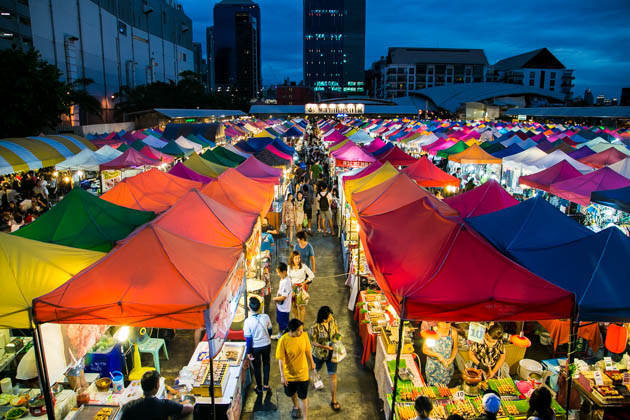
Street food is a way of life in Bangkok and it is almost always a good option. A bowl of noodles will cost about one dollar so it’s often less expensive to eat out than cook at home. Plus, everything is always tasty! The very best restaurants will run you around $15 USD for a high-end meal and the food is amazing. For breakfast, consider having a street vendor chop up bite-size pieces of fresh fruit and then serve your food in a plastic to-go bag for $1.00 USD! They include a disposal utensil.
Family members will haunt you, while living in Bangkok, to purchase items at a street mall. Silk is king, but so are all kinds of native offerings such as wooden serving pieces and craft jewelry. Wine bottle gift bags cost about $2 USD each and are amazing in detail and quality. Bangkok is always a great place to shop but also consider Chiang Mai and Phuket, although it’s easy in these areas to get caught in the items directly offered mainly to tourists.
Teaching English!
There is a great deal about Thailand that is attractive including the fact expats can often secure a job teaching English as a second language. It won’t be a great deal of money, but you will quickly find yourself more integrated into the local culture and even picking up some of the local language. Sawadee ka anyone?
Another positive is that there is no age limit for teaching. Unlike other Asian countries, such as Korea where you cannot be hired if you are over 50 years of age, there are plenty of 60- and 70-year-olds teaching in Thailand. There will be a variety of areas where you can secure these jobs and live from glorious islands to small hill cities, all much more off the beaten path. Read–less expensive with less traffic.
What is not great about actually living in Bangkok or Thailand long-term is the cultural shock. Women are commodities. Often times a young girl-child is the only currency a family may have. The prettier and younger the better. If these young girls are “married” then the older (almost always much older) man must look out for the whole family. The child brides can be seen sitting with the men, patting their arms while the “husband” enjoys dollar local beer until well into the night when she “helps” him home. There never seems to be any conversation and often times she can be seen administering medication at appropriate hours.
Massage With A “Happy Ending”!
In addition to using young girls as commodities, there are plenty of “walking streets” in just about every Thai city. Along these streets, women stand on display willing to trade their evening for a few dollars. Older women have a stable of girls and she manages all transactions, complete with a money bag around her waist. Massages are offered with “happy endings” and “ladyboys” will poise for photographs for about $3.50 or 100 Thai Baht.
The Lady Boys (males) are truly amazing and most of the time, much more beautiful than women. It doesn’t matter what you might be looking for, it can be arranged on the “walking streets” throughout Thailand. There is great tolerance for the gay lifestyle and Bangkok has been named by US News and World Report as one of the “Most Friendly Place for Gays To Retire” and certainly the most inexpensive among the others on that list including Paris, Madrid and Tel Aviv. Homosexuality has been legal in Bangkok since 1956.
But just because there is a highly developed sex scene in Bangkok, there are also many areas where homosexuals live and work among the expat communities without engaging in “walking street” activities, but rather enjoy the exceptional food scene and cultural activities. According to US News & World Reports, “Bangkok offers everything you could be looking for in an Asian metropolis: eclectic attractions, mouth-watering local food, bustling markets, cultural heritage and exciting nightlife, all at a low cost.”
How About Ireland?
Another suggestion for “Best cities for Expats” included Dublin, Ireland. Rents in Dublin are high with a one-bedroom going easily for $2,000 USD a month if you are lucky. Finding places is a challenge because renters just have to give a 30-day notice. You need to be quick to even know what is on offer. Almost everything is a minimum year lease so if you want to rent by the month or even the week, be prepared to pay much more.
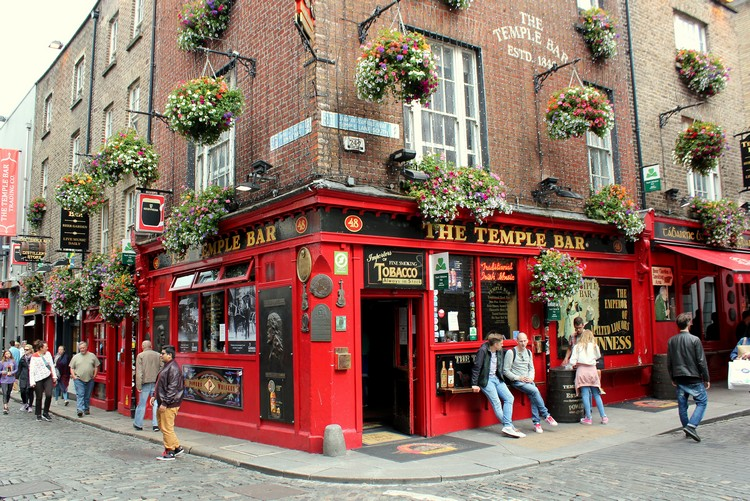
Get Ready For Serious Cash Commitments
US citizens can go to Ireland without a visa for three months, but after that, you will either need to have employment, be there as a student, or be retired. Living in Ireland as a retired person is expensive. While the laws around retirement change frequently, you will need to show that you have a minimum of $61,500 USD annual income. That amount is individual as opposed to joint. You will also need to have a lump sum deposited for emergencies beginning around $200,000 USD. If you live in Ireland for at least 183 days you will need to pay between 20 and 40% in Irish income tax on things like Social Security and any other income.
When considering retirement in Ireland, don’t forget the cold dark days of winter and the dampness that seems to be everywhere. November through March can be difficult but the remaining months are beautiful which makes Ireland especially attractive for part-time retirement.
No Vehicle Needed
Public transportation is good, but it is expensive. The city center in Dublin is very compact so if you are the physical type you may just choose to walk or bike everywhere! With light rail and the bus system, a ticket for four- to 13-stops costs $3.50. In Panama City, the metro with more stops will cost only $ 0.35. You can get to the airport from the city center of Dublin for about $10 USD, but it’s less than $3.00 USD in Panama.
Generally, Dublin would appeal to the younger set looking to relocate abroad because much of becoming a resident is dependent on employment. Jobs in Information Technology offer the most possibility for expats in Ireland. After living there legally for a minimum of five years, one is allowed to file for permanent residency. In Panama, you can begin the application process even before you move to the country and it only takes a foreign investment of $300,000 in real estate or a $500,000 deposit in a local bank or $750,000 in the Panamanian stock market.
To obtain permanent residency in Ireland you will need to maintain consecutive employment for 60 months. Not all types of employment qualify, so the window is fairly narrow and will take some research. It might just be easier to marry an individual who carries an Irish passport!
Open And Generous
Dubliners are an open and generous society and love to befriend people from other countries so the expat community is well integrated. As an aside, nine percent of the Irish have red hair and they have elected two female presidents. Contrary to popular belief, Ireland has no religious affiliation, but 78.3% of the citizens are Roman Catholic.
Like most industrialized countries, Ireland has a comprehensive and well-funded public healthcare system. If you have lived in the country for at least one year, you will be entitled to health services as an “ordinary resident.” Healthcare–and basic infrastructure such as roads and bridges–are primarily limited to the larger urban areas such as Dublin and Cork.
Live Where the Pope Was Reared
If you are looking for a European city with history and culture, the list suggests you consider Warsaw, Poland. Rent is definitely a plus as the average one-bedroom apartment will run, on average $965 a month. A three-bedroom in central Warsaw averages $1,349. Single rooms with a shared bathroom, kitchen and laundry go for as little as $133 a month. Residences may be purchased for as low as $100,000 USD and generally not more than $300,000 USD.

Religion is a big part of daily life in Warsaw as over 90% of the population is Catholic. Poland has no official religion, but most of the citizens take great pride in the fact Pope Saint John Paul II was of Polish heritage. The city of Kalwaria in Southern Poland is one of the most significant sites of Catholic pilgrimage in Europe as well as the nearby city of Wadowice, where the pope grew up.
Retiring in Poland is not especially hard, and visiting for 90 days is very easy. Poland is a Schengen-member so individuals from other Schengen members do not require a visa to visit. In addition, all European Union (EU) member countries, the United States, Canada and Australia may also enter without a visa for up to 90 days. After 90-days individuals need to prove that you are in Poland to work, study, or for family reasons. This will allow you to obtain a two-year temporary residence visa.
Poland is often thought of as one of the easiest countries to gain easy access to the EU. To receive the National Long-Stay Visa you will only need a passport, proof of health insurance, a reference letter explaining the purpose of you living in Poland and proof that you are fiscally secure.
Health insurance is especially important in Poland as universal care is not afforded to its citizens and certainly not to visitors. Most individuals are covered by their employer, with private insurance covering the balance. Only 7% of the citizens actually have private health insurance. There is the belief that everyone should be taken care of, but the reality is the lines are long to obtain access and often times it is on an emergency basis.
Politically Divided
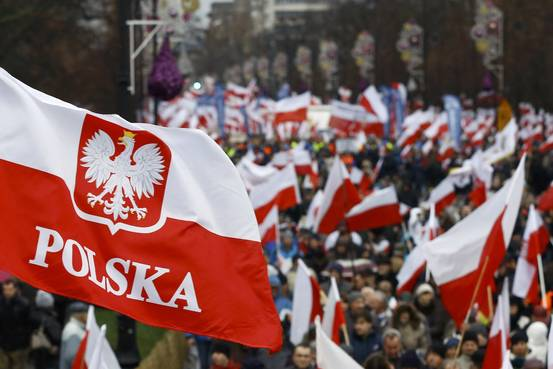
Today, Poland is politically divided much like the United States. The Law and Justice party operates in lockstep with the Catholic church and has worked against allowing Muslims into the country and declaring cities “LGBT Free Zone”s. There have been demonstrations recently that have turned violent.
Poland has a robust public transportation system that is inexpensive and good. One-way tickets around Warsaw are just over $1.35 and that is a good thing considering gasoline for vehicles runs over $15 a gallon!
Despite some of these drawbacks, Warsaw is a lovely green city with over 20,000 acres of parks. The food scene is amazing and the nightlife for young adults is especially compelling. The job market is red-hot and native English speakers are in high demand in finance, information technology and logistics.
And, Then There Is Coronado
Number six on The Discoverers’ list of top places for expats is Coronado, Panama. The description about why Coronado was such a good place to live, centered on the “white” sandy beaches (mostly the sand is black in Coronado), great golf courses and plenty of “settled expats to show you the ropes.”
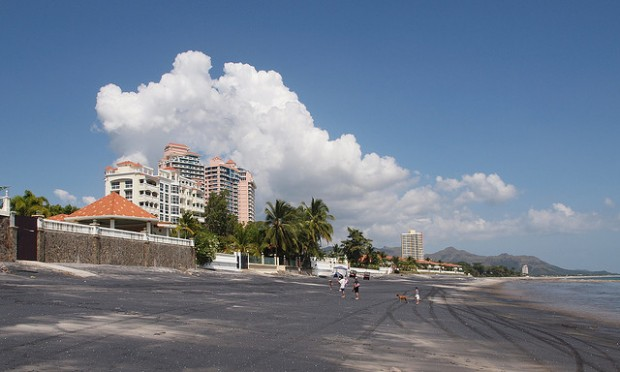
There are plenty of expats who are friendly and helpful, however there are so many more compelling facts about Coronado and Panama. Healthcare is exceptional and world-class, the economy is booming (the richest in Latin America), the food scene consistently delights and education is basically free and a priority. Infrastructure is excellent and public transportation very inexpensive. A majority of Panamanians are Catholic, but they are an incredibly tolerant people, welcoming everyone. Jews walk alongside Muslims and Chinatown in Panama City is one of the largest in the world. Panama City also has the only Jewish Day School in Latin America, plus bi-lingual schools in French, German, English, Japanese and Italian.
Since Panama is small, you can hike in the mountains and swim in two oceans all in the same day. Research being conducted at the 12 different Smithsonian Tropical Research facilities is world-class. Panama is business-friendly and welcomes citizens from around the world. The internet is billed as some of the best in the world and the Panamanian government has multiple laws that encourage foreign investment including no taxation on income earned outside the country and years of no real estate tax.
Bottom Line, Do Your Research
Panama is not for everyone. The weather isn’t warm, it’s hot. Customer service can be infuriating and the holidays are endless. If you are considering moving abroad, it’s important to do research. There will be that perfect place for you, but you will need to look for it!
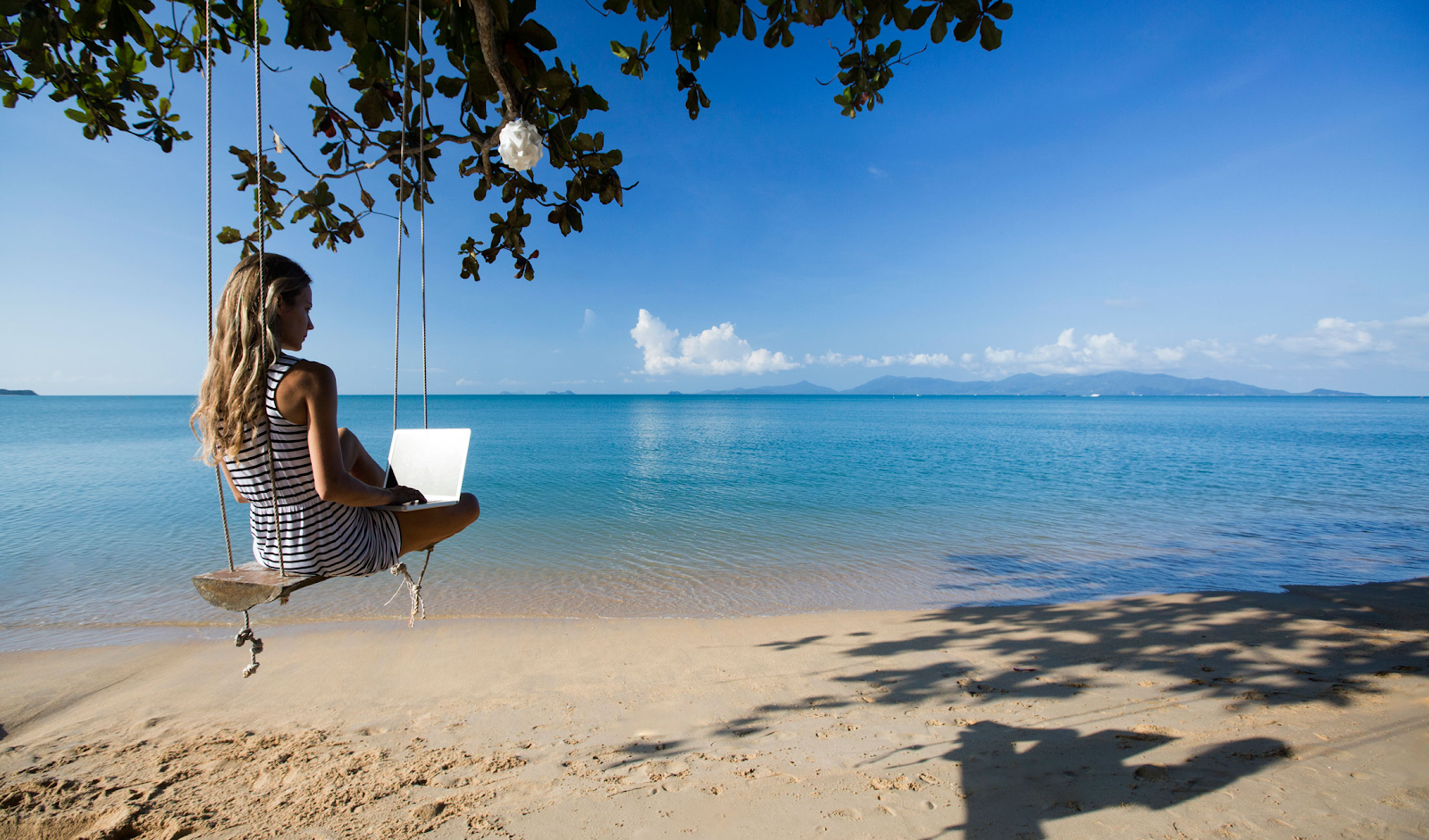
Start by listing what is important to you. If you want to be a digital nomad then research the quality and price of the internet. If cultural activities are important, then see what is on offer, year-round. Is it enough? If you want to be able to easily go home for birthdays and visits, then don’t consider someplace like Singapore which requires multiple connections and 30 hours by plane. Even phone calls are difficult with a 12-hour difference.
If conquering a second language is difficult, don’t consider places such as Russia where even the alphabet is different and English is almost non-existent. Be brave and realistically consider your finances. Will you really be happy in a space about the size of a hotel room even if it is located in a very hip and trendy urban environment or ocean-front?
Do you want to just live among expats or would you be happier immersing yourself in the locals and their way of life? It doesn’t matter your age or even your health, having access to doctors and healthcare is important. At least have a plan B if something goes wrong.
If volunteering is important, know what options are available. Maybe teaching English as a second language or helping cook at a local orphanage. If you have the seasonal affective disorder (SAD), Iceland probably will not be your best choice.
Only you will know what is really important so be honest and look at your options realistically. Moving to Paris has a wonderful sound to it, but will you be really happy? It’s expensive and they expect you to speak French.
If Panama is on your list of possible locations, consider going to the Boldly Panama website where the work has been done for you. https://www.boldlypanama.com/. Everything from schools or real estate, food, nightlife, living day-to-day has been researched and organized. And, everything is up-to-date!
Living the expat life is exciting, fun, challenging and bold! You can do it, just make sure you select the right place for you!

 Copyright 2024
Copyright 2024
Liz….You have done a fantastic job with this article!!! Really great!!
Thank you Doug!